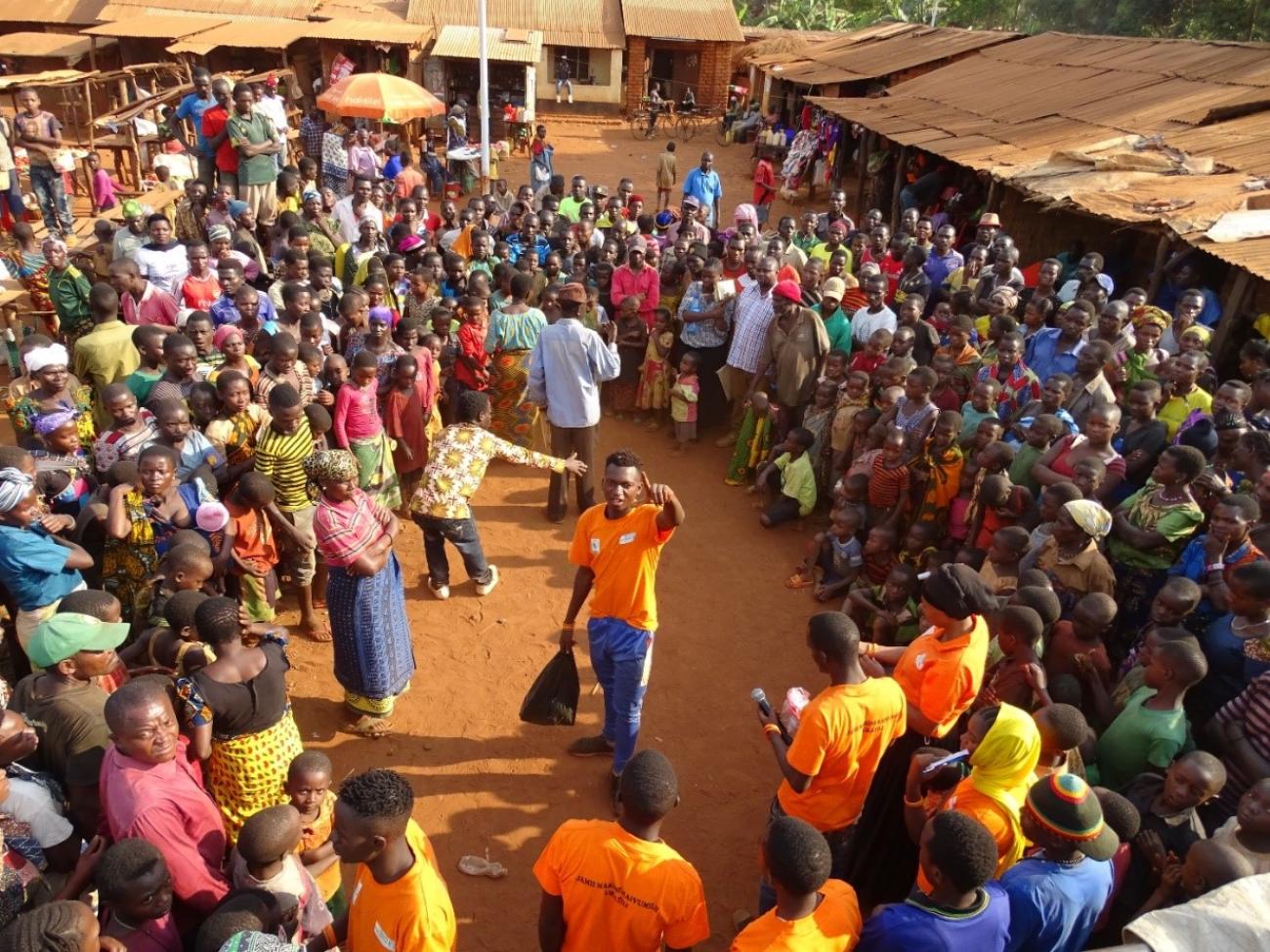In Tanzania, UN Women is intensifying its efforts to enhance partnerships in the fight to end violence against women and girls in the Kigoma Region. In collaboration with the Kigoma Regional Office, UN Women organized a stakeholders’ dialogue meeting to facilitate discussions on improving partnerships in the fight against gender-based violence.
A total of 61 per cent of women aged 15-49 in Kigoma have experienced sexual or emotional violence perpetrated by their husband or partner, with 33.4 per cent suffering violence in the 12-months preceding the Demographic and Health survey of 2015/16.
UN Women is one of the 16 UN agencies working in the Kigoma Region through the UN Kigoma Joint Program. The programme is providing support to refugees and host communities to foster co-existence, improve development, and ensure peace and stability. The UN agencies are collaborating across seven thematic areas including ending violence against women and children, youth and women’s economic empowerment, education with a focus on young women and girls, agriculture and development of local markets, health and HIV, and nutrition.
The stakeholders’ dialogue aimed to support government’s efforts through the National Plan of Action to End Violence Against Women and Children (NPA-VAWC), which drives UN Women’s Ending Violence Against Women (EVAW) programme.
It was attended by 63 participants drawn from the Kigoma Regional Secretariat’s office, social workers, legal experts, the media, psychologists, the Elders Initiative, and representatives of local and international non-governmental organisations – all based in Kigoma. Discussions evolved around crafting strategies to improve collaboration, coordination, communication, monitoring of activities, and evaluation of the programme’s impact.
The EVAW Programme Specialist, Ms. Lucy Tesha, said stakeholders agreed on developing a joint work plan to improve partnerships and promote joint implementation. “Given the need for activities to speak to one another, prevent duplication of efforts, and maximise utilization of limited resources, a joint work plan will help all stakeholders to know and understand the work being done, as well as support reporting and collection of data for monitoring and evaluation,” Ms. Tesha said.
She further explained that, in one of EVAW programme strategies, UN Women is working through Gender Forums to gather views that are helping to improve the gender-responsive implementation of the EVAW programme. “Stakeholders identified the need to further expand these Gender Forums in all communities to reach more women and girls and other strategic partners, such as the media and school-teachers.”
She said by bringing the forums much closer to the local communities, more women and girls can participate in the discussions, while encouraging teachers to support education on GBV in schools, in addition to improving relations with the media as they capture discussions to raise awareness.
Ms. Tesha said the majority of participants also called on establishing feedback mechanisms in schools, marketplaces, and public transport depots to improve reporting of GBV cases. “Participants also called on measures to help improve the quality of interventions through strengthening of support to survivors at family and community level, management of cases at the police gender and children’s desks, access to legal aid and health services, and timely delivery of justice for women and girls,” she said.
On his part, the Kigoma Regional Community Development Officer and focal person on GBV prevention, Mr. Msafiri Nzurunuri, reiterated the need for concerted efforts by all stakeholders in the region to align activities with the National Strategy and Guidelines on the Prevention of VAWC and the Regional Communications Plan.
“The Regional Communications Plan includes key messages, which all actors should use in their advocacy work for us to have the same position and narratives,” said Mr. Nzurunuri.
He advocated for a bottom-up communication approach working through community dialogues and ensuring that community members become drivers of implementing solutions discussed and agreed on during public discussions.



